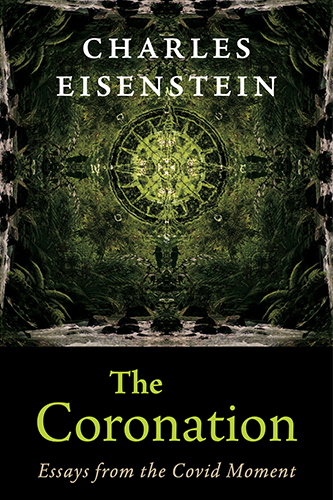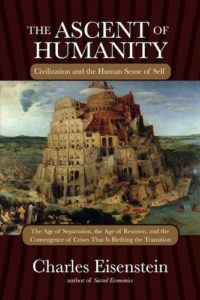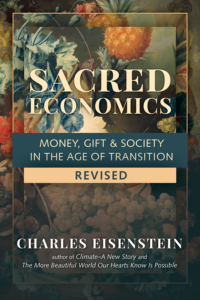Climate — A New Story
Chapters
Chapter 3: The Climate Spectrum and Beyond
The Institution of Science
If the skeptical “right” and doomsaying “left” are both trapped in reality-tunneling confirmation bias, perhaps we should flee to the center: the standard climate change narrative. This is comfortable territory, staked out by our society’s primary epistemic authority, science.
The problem is, the dynamics that afflict the two extremes afflict the middle as well. Over the last few years, a growing chorus of insider critics have been exposing serious flaws in scientific funding, publishing, and research, leading some to go so far as to say, “Science is broken.”[20]
The dysfunctions they describe include:
- Various kinds of fraud: some deliberate, but mostly unconscious and systemic [21]
- Irreproducibility of results and lack of incentive to attempt replication [22]
- Misuse of statistics, such as “P-hacking”—the mining of research data to extract a post hoc “hypothesis” for publication [23]
- Severe flaws in the system of peer review; for example, its propensity to enforce existing paradigms, to be hostile to anything that challenges the views of the reviewers whose careers are invested in those views [24]
- Difficulty in obtaining funding for unorthodox research hypotheses [25]
- Publication bias that favors positive results over negative results, and suppresses research that won’t benefit a researcher’s career [26]
The system encourages the endless elaboration of existing theories about which there is consensus, but if one of these is wrong, there are nearly insuperable barriers to its ever being overturned. These go far beyond classic Kuhnian resistance to paradigm shift—critics call it “paradigm protection.” Former NIH director and Nobel laureate Harold Varmus describes it this way:
The system now favors those who can guarantee results rather than those with potentially path-breaking ideas that, by definition, cannot promise success. Young investigators are discouraged from departing too far from their postdoctoral work, when they should instead be posing new questions and inventing new approaches. Seasoned investigators are inclined to stick to their tried-and-true formulas for success rather than explore new fields.[27]
It is easy to see how these dynamics might impact climate science, a politically charged field that receives billions of dollars of government funding. Skeptics’ websites contain laments by climate researchers who are afraid to attempt publication of results that contradict climate orthodoxy because they do not want to be ostracized as a “denier”; professors telling of discouraging graduate students from investigating inconsistencies in the data; and anecdotes about reputable scientists who lost funding and professional appointments after they issued mild criticism of official positions.
The dissident climatologist Judith Curry raises questions about the genesis of the scientific consensus around climate change:
The skewed scientific “consensus” does indeed act to reinforce itself, through a range of professional incentives: ease of publishing results, particularly in high impact journals; success in funding; recognition from peers in terms of awards, promotions, etc.; media attention and publicity for research; appeal of the simplistic narrative that climate science can “save the world”; and a seat at the big policy tables.[28]
All of this adds up to a kind of collective confirmation bias within science, the same cognitive handicap that so obviously afflicts many climate skeptics. In other words, confirmation bias is not limited to those outside the establishment. It is institutionalized within it as well, despite the system of peer review that is supposed to eliminate it. Here is what my father, a retired professor, says about peer review:
Peer reviews in my field were often sloppy, dashed off because reviewers had little incentive to spend time. No one received the authors’ data to replicate. Editors could bias the result through choice of reviewers (this is important). Also, coteries of researchers in specialized fields, who were the only ones who could understand a given article, would make favorable reviews to enhance the status and visibility of their clique.
Let me hasten to add that this doesn’t mean the establishment view on climate (or anything else) is wrong. It means, though, that if it were wrong, we may not easily know it. We would know it only if the self-correcting mechanisms of science-as-institution are properly functioning.
To those who suspect me of being “anti-science,” let me make a confession. The consensus around global warming that brings together Big Science, governments, and most of the world’s elites makes me less confident, and not more, in the standard narrative.
Why should I accept the consensus around climate change when I reject the very same consensus that has been invoked in support of GMOs, nuclear power, pharmaceutical oncology, or the safety of common pesticides?[29]
The reader might object that the consensus on these topics is weaker than the consensus on climate change, and she may be right. The prospect of offering stronger examples of questionable scientific consensus presents a bit of a quandary, however. If I reveal my doubts about, say, standard Big Bang cosmology, dark matter, the Lipid Hypothesis for arteriosclerosis, or the pumps-and-channels model of cell membrane physiology, then I will be undermining the credibility I need to make my point effectively. The reader will assume I am deficient in intellect, ignorant of basic science, or credulously enamored of kooky theories. He will lump me in with biblical creationists, flat-earthers, and moon landing conspiracy theorists. Or perhaps he will conclude my contrarian views have a psychopathological origin; that I’m rebelling against my father or suffering from oppositional defiant disorder.
It is impossible to cite an example of a fallacious scientific consensus that will be convincing to a person who trusts scientific consensus. Of course, one could adduce historical instances where scientific consensus was wrong—the luminiferous ether, eugenics with its calls to save humanity from genetic degradation, and the hackneyed example of geocentric cosmology come to mind—but the believer can turn those around and say, “See, science works. Wrong theories are eventually rejected and we are converging on the truth.” The implication is that the big mistakes are all safely in the past.
None of this is to say that I believe in every scientific heresy I encounter. After all, many scientific heresies are themselves mutually contradictory. On many issues I don’t have a strong opinion one way or the other, because when I try to pin it down and figure out which side is right, I end up in a welter of competing claims that I am incapable of evaluating—just as I described in the satellite temperature debate.
The reader may be familiar with this kind of rabbit hole. Whether you are investigating 9/11 conspiracy theories, chemtrails, crop circles, vaccine damage, or nonstandard archaeological, cosmological, biological, or geological theories, the pattern is the same. One side invokes the authority of the scientific establishment, while the other consists largely of marginalized heretics. These dissidents complain about the difficulty they have obtaining research funding, getting published in journals, and getting their arguments taken seriously. Meanwhile, the defenders of orthodoxy cite the self-same lack of peer-reviewed journal publication as reason not to take unorthodox theories seriously. Their logic is basically: “These theories are not accepted; therefore they are not acceptable.” That is confirmation bias in a nutshell.
In most controversies that pit a powerful orthodoxy against a marginalized heterodoxy, the establishment makes liberal use of scare quotes and derisive epithets like “denier,” “conspiracy theorist,” or “pseudoscientist” to exercise psychological pressure on the undecided layperson, who does not want to be thought a fool. These tactics invoke in-group/out-group social dynamics, leading one to suspect that the same dynamics might prevail within the scientific establishment to enforce groupthink and discourage dissent. But again, perhaps the unorthodox theories really are bunkum and deserve the derision directed at them. We the laypeople cannot know. It comes down again to our trust in authority.
I would like to advance a narrative of ecological healing that does not depend on trust in existing institutions of authority, scientific or otherwise. Science can still be an ally (I will draw heavily from it in the next two chapters) but it need not be the master.
In the extremely polarized climate debate, it might be hard for the reader to actually believe that I am not attempting to construct a surreptitious case against anthropogenic global warming. That is not my intention. To repeat: my intention is to uncover hidden agreements shared by all parties to the debate, agreements that will generate a worsening crisis and, ultimately, catastrophe no matter which side is right.
End Notes
[20] Belluz and Hoffman (2015).
[21] Freedman (2010).
[22] Baker (2016).
[23] The Economist (2013).
[24] Smith (2006) and The New Atlantis (2006).
[25] McNeil (2014).
[26] Peplow (2014).
[27] Albert et al. (2014).
[28] Curry (2016).
[29] Mitch Daniels’s 2017 Washington Post op-ed, “Avoiding GMOs Is Not Only Unscientific, It Is Immoral,” exemplifies this genre. See also my response: Eisenstein, 2018.






